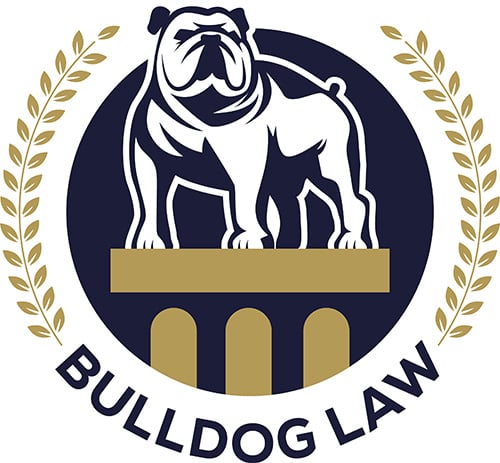Serious Defense For Drug Crime Charges
In Los Angeles and throughout Southern California, drug-related crimes are extremely common. Being one of the biggest and most populous states, plus one of the main illegal drug entry points to the west side of the country, makes Californians an easy target for false accusations and rights violations.
Numerous laws have been created in California over the years to cut down drug trafficking into the state, break down distribution channels, minimize drug abuse and combat drug-associated crimes.
Either for the money or many other reasons, all kinds of people are badly affected by these crimes. Therefore, seeking the help of a professional criminal law attorney becomes a priority to give the best defense against drug charges in a state court. We will fight to avoid prison and all the other consequences of a drug conviction.
Common Drug Crimes In California
We can capably address all drug charges and related crimes (state and federal charges), including:
- Possession of more than 28.5 grams (one ounce) of marijuana for personal use
- Possession of heroin, methamphetamine or other street drugs
- Possession of prescription drugs for recreational use
- Possession with intent to distribute
- Drug trafficking and transportation
- Drug smuggling
- Manufacturing illegal drugs
- Growing marijuana (commercial quantity) without a license
- Drug-related firearms offenses
- Money laundering or criminal conspiracy
Drug charges are chiefly based on the amount of drugs discovered by law enforcement. For example, intent to distribute basically means possessing more than a personal use quantity, and trafficking refers to a large quantity presumably associated with drug dealing. It is not necessary for prosecutors to prove actual transactions or distribution to make those charges stick.
California’s Classification Of Various Drugs Of Abuse
California uses a model, similar to but modified from the federal model, to group controlled substances into five different classes, or “schedules.” Drugs that are schedule 1 are considered the most dangerous/addictive with the least amount of accepted medical value. Conversely, schedule 5 drugs are considered the least dangerous with the highest accepted medical value.
Below are examples of drugs in each schedule. There are numerous pharmaceutical drugs on the list, but they are only illegal to possess without a valid prescription:
- Schedule 1: Heroin, PCP, cocaine base, Ecstasy, Peyote, Mescaline, other hallucinogens
- Schedule 2: Amphetamines (including Ritalin and Adderall), methamphetamine, opium, most opioids (Vicodin, OxyContin, morphine, etc.)
- Schedule 3: Various steroids, Ketamine, pentobarbital
- Schedule 4: Xanax, Tramadol, Ambien (zolpidem), diazepam
- Schedule 5: Typically medicines that contain non-narcotic pain relievers mixed with lower doses of narcotics like codeine
When charged with drug possession, the schedule of the drug matters (with lower schedules more likely to result in serious charges). But other factors are also considered, such as quantity, prior offenses and any alleged aggravating factors. It is important to speak with a skilled defense attorney to fully understand the charges you are facing.
Was The Evidence Against You Obtained Illegally?
Physical evidence is important in any criminal case but especially so in drug cases. Unfortunately, the police sometimes violate a suspect’s civil rights in order to obtain that evidence. The Fourth Amendment to the Constitution protects each of us from unreasonable search and seizure by law enforcement. Most of the time, that means the police must obtain a warrant or otherwise show probable cause before conducting a search.
When you work with our firm, we will thoroughly examine the evidence against you as well as how that evidence was collected. If the police violated your rights, we can file a motion to suppress the evidence discovered, meaning that it could not be used to convict you.
We Aim To Limit The Punishment
Drug crime convictions are punished harshly. Sentencing is based on the type of drug, the amount and other factors such as prior drug offenses. Many marijuana offenses (such as simple possession or drug paraphernalia) are misdemeanors, but most drug crimes are felonies.
You could be facing time in county jail, state prison or federal penitentiary, as well as substantial fines. After release from prison, you may be required to submit to drug testing and other conditions of parole. The felony record can interfere with employment, housing, lending and other aspects of life.
For these reasons, our team works hard to avoid a drug conviction if possible, or negotiate lesser charges or alternative punishment. First-time offenders may qualify for drug court or a diversion program that avoids jail time and the black mark of a drug conviction in exchange for entering drug treatment or supervised probation.
Encouraging Reforms In Drug Sentencing Laws
In late 2021, California’s governor signed a bill that will do away with mandatory minimum sentences for individuals convicted of nonviolent drug crimes. Mandatory minimums, which took discretion out of the hands of judges, have resulted in countless instances of unduly harsh sentences for drug offenders. The result has been an explosion in jail and prison populations, including a disproportionate number of inmates from minority communities.
The law goes into effect at the beginning of 2022 and will give judges more authority to impose sentences based on the facts of a case rather than arbitrary minimum sentence requirements.
Defenses Against Drug Charges
There are several ways that a criminal defense attorney can help to get the best deal possible out of these types of accusations. Possible defenses or mitigating circumstances include:
- Illegal search and seizure
- Unreliable informants
- Errors in lab analysis
- Compromised chain of custody of evidence
- Overcharging (intent to distribute instead of simple possession)
- Entrapment
- Medical necessity or drug addiction
Our Experience Can Make A Difference
With years of practice experience in Los Angeles and the state of California, the Bulldog Law, has the capability to handle the toughest cases and guide you step by step through the criminal justice system. If you or anyone close to you is facing any drug crime accusation, please feel free to contact us for a free consultation and case assessment.
We have numerous offices in Southern California and statewide. Call toll-free at 888-983-1217 or contact us online.


